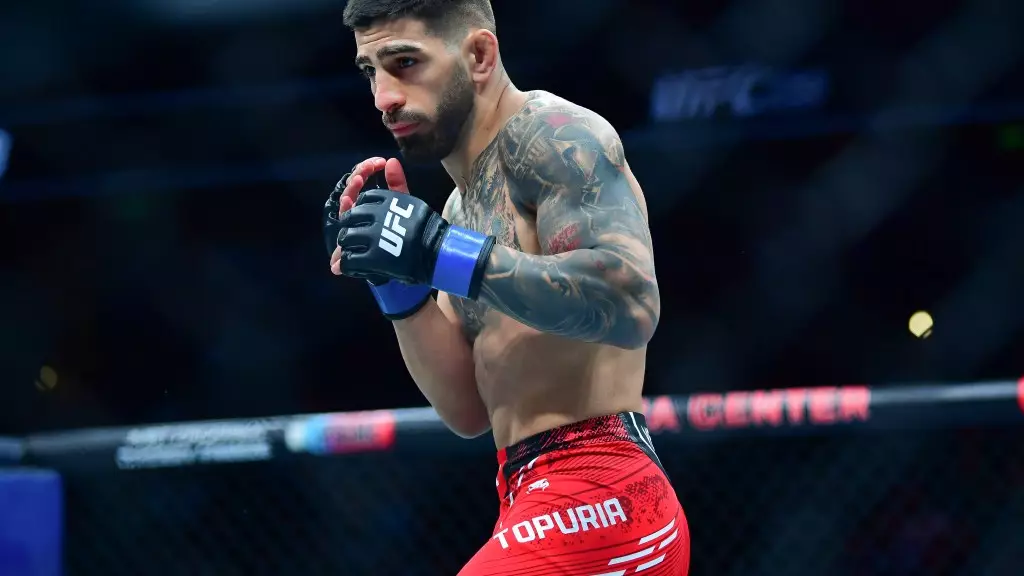Dustin Poirier recently shared his thoughts on a highly anticipated showdown between two of the UFC’s most dominant fighters: Ilia Topuria and Islam Makhachev. Topuria, the reigning featherweight champion with a flawless record of 16-0, is eyeing a bold leap into the lightweight division to challenge Makhachev, the 155-pound champion known for his wrestling prowess and strategic fighting style. While Poirier recognizes Topuria’s exceptional skills and knockout power, he raises concerns about the potential size disadvantage that Topuria would face against a fighter of Makhachev’s caliber.
Size often plays a critical role in combat sports, particularly in mixed martial arts where grappling techniques dominate. Makhachev, with his reach and strength, provides a unique challenge for any opponent, and Poirier’s comments underline this reality. He acknowledges that while Topuria possesses incredible timing and striking abilities that could catch anyone off-guard, the opportunity to succeed against a larger opponent like Makhachev is daunting. Poirier recalls his own encounter with Makhachev, highlighting the disparity in size and strength that left an impact on him.
Topuria has emerged as a formidable force in the featherweight division, securing notable victories including knocking out the legendary Max Holloway, a feat that marked a significant milestone in his career. His striking efficiency and ability to finish fights make him a threat in any weight class. The anticipation around Topuria moving up to lightweight is palpable; fans and analysts are eager to see how his power translates against opponents who naturally cut more weight. Still, as Poirier points out, the grappling heavy approach often adopted by fighters like Makhachev complicates matters for smaller fighters.
If Topuria manages to secure a title fight against Makhachev, it could lead to an enthralling tactical battle. On one hand, you have a striker like Topuria, whose ability to connect and create openings could result in a knockout, reminiscent of his previous knockouts at the highest level. Conversely, Makhachev’s grappling and ability to control the pace through wrestling may dictate the fight’s trajectory if he can impose his size advantage early on. Each fighter brings a unique game plan; Topuria with hopes of delivering explosive strikes and Makhachev looking to neutralize his striking with grappling.
The potential match-up between Topuria and Makhachev raises many questions about the future dynamics of the divisions they occupy. While each has carved out a niche within their respective weight classes, the blend of styles and skills may lead to one of the most talked-about fights in recent UFC history. Regardless of the outcome, this bout could very well reshape perceptions within the sport about weight classes, striking versus grappling, and the challenge of rising through the ranks. Poirier’s insights provide a sobering perspective on the realities of competing at such high levels — after all, the octagon is unforgiving, and only the best will emerge on top.

